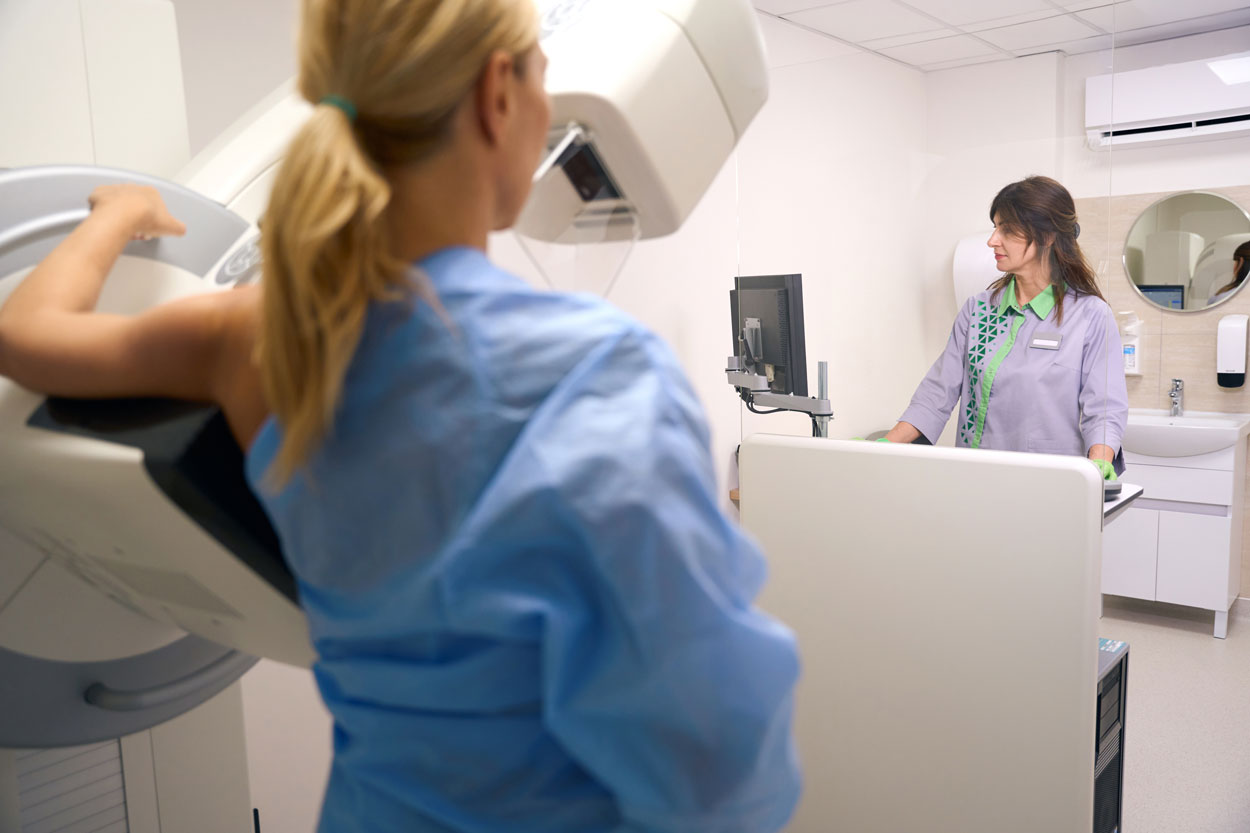By Dr. Mary Elizabeth Lobrano
All breasts consist of fatty tissue and dense tissue. If your doctor says that you have dense breasts, it simply means you have more of the dense (or fibroglandular) tissue. It is a very common finding that affects about four in 10 women.
Why is this important to know? Having dense tissue moderately increases your risk for developing breast cancer. It also can hide potential signs of cancer on a mammogram, making it harder to get a clear result.
Breast density can’t be determined by sight or touch. It only can be found via screening. It’s unknown why some women have high breast-tissue density. Being younger, having a lower body-mass index and hormones all are thought to play a role.
WHAT ARE THE RISKS?
Women with dense breast tissue have a greater risk of developing breast cancer. The American Cancer Society estimates a 15% to 20% greater risk compared to women without dense tissue. Dense breast tissue also makes cancer harder to detect on a mammogram, thereby increasing the risk for a false-negative result.
THE IMPORTANCE OF ADVANCED SCREENING
Breast tissue and cancer both appear white on a mammogram, which is why cancer is more challenging to detect with standard mammography. However, advancement in mammogram technology means that we can now provide 3D mammograms — also known as digital tomosynthesis. This makes it easier to spot areas of concern.
During a 3D mammogram, multiple pictures of the breast are captured from different angles using X-ray. They then are merged into a three-dimensional view of the breast, allowing radiologists to look through different layers of the image.

Because it offers an enhanced view of the breasts, 3D mammography is more effective in diagnosing breast cancer than traditional 2D mammograms. It is the recommended screening test for women with dense breasts. Supplemental screening with breast MRI or breast ultrasound also may be recommended, especially in women with a high lifetime risk of breast cancer.
Understanding breast density isn’t about fear; it’s about empowerment. Talk to your doctor about your breast density and what screening options are right for you. Be your own advocate. It could make all the difference.
Dr. Mary Elizabeth Lobrano is a diagnostic radiologist at Ochsner Health Center Hancock. Visit ochsner.org to learn more about the advanced mammography services available at Ochsner Health.


